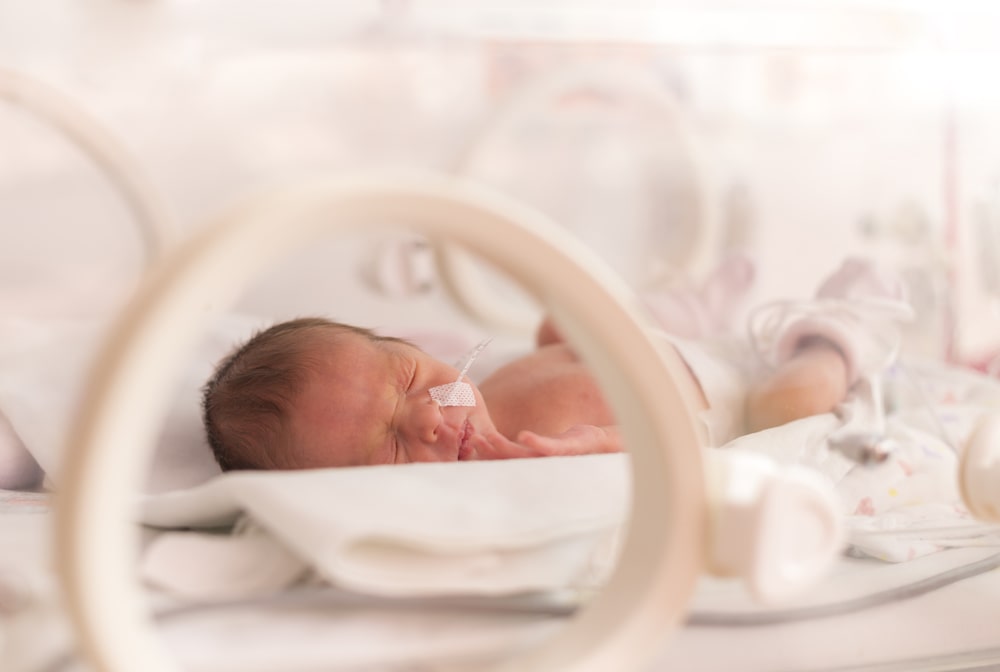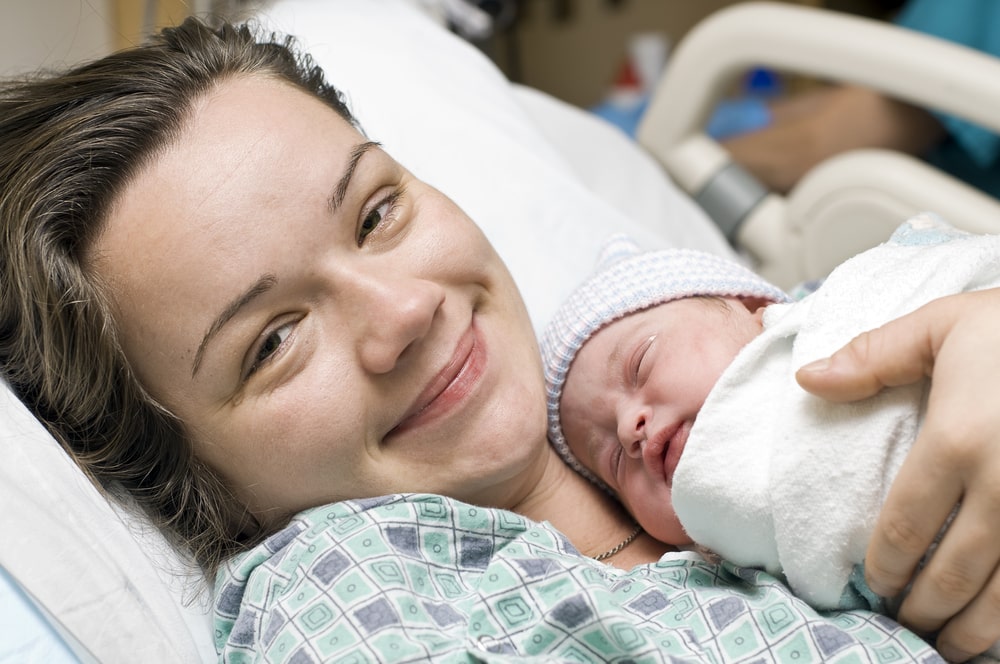Your baby has been your entire world since the minute they were born. They have taken priority over everyone including yourself. So when you are experiencing doubts that your baby doesn’t like you or love you it can be a very painful time.
Feeling like your baby does not like you doesn’t mean you are a bad parent. It just means that you are a concerned parent but that deep down you are hurting.
Do not think that you are alone as many parents experience these same feelings and concerns.
We are going to take a closer look at some of the reasons that you may be feeling that your baby doesn’t like you or that your baby is more interested in other people.
Is It Normal To Not Feel A Bond With Your Baby?
Bonding refers to the special attachment that forms between parents and their new baby. This extreme bond is what sends parents rushing into their little ones’ bedroom in the middle of the night for the slightest squeak.
It is also that instinctive need to care for and nurture their baby. Sometimes this bond is instant but for other parents, it takes weeks even months to develop.
Studies have found that around 20% of parents feel no real emotional bond with their newborn in the hours immediately after birth.
So the answer is yes it is normal to not feel a bond with your baby or that they do not like you. As we have said it can take weeks or even months for this bond to develop.
Do not feel guilty if you don’t feel that instant bond with your baby. Be patient as this bond often develops as you care for your little one or you may not even realize that you have any attachment to your baby until they give you that first toothless giggle and your heart skips a beat.
Reasons Why Bonding May Not Be Immediate
There are a few reasons why parents especially mothers may not have that instant bond with their baby. Bonding can be more difficult if you had a C-section or if you were unable to see your baby right after birth.
View in gallery
If your baby was premature and had to spend any time in the neonatal intensive care unit (NICU), or if your baby is adopted.
All of these circumstances can take away those first precious moments with your baby but even if this was the case for you, the bond will eventually happen.
Another reason why some mothers may not be able to form that strong bond with their baby is that they develop postpartum depression. This illness not only severely affects the mother’s quality of life but also her ability to create that bond with her baby.
Other factors that may hinder the creation of that parent to baby bond is:
- Lack of social network
- Life stresses such as a difficult job, financial difficulties, or unemployment.
- Marital problems or abuse
- A past pregnancy loss or loss of a child
- A history of depression or mental illness
- The lack of a positive parental role model as a child.
Why Dads Sometimes Struggle To Bond With Their Baby And How To Help
When anyone talks about bonding with a new baby the bonus is always on new mothers, but many fathers also want to bond with their new baby and their struggles are often overlooked.
Dads often have more trouble bonding with their new baby, especially if your baby is breastfed as they miss out on that skin to skin contact. Here are some great ways to enhance that dad-baby bonding experience:
- Even before your baby is born start bonding with them. This can be as simple as placing your hand on your partner’s tummy to feel the baby kick. Attend appointments for prenatal care.
- Be there at their birth. Be there in the delivery room during the birth and take part in the delivery as much as possible.
- Ensure that you help as much as possible with the baby’s care. Take over the feeding so your partner can get some much-needed rest, bathe your baby, change diapers, or sing your baby to sleep.
- Use a baby carrier and walk with your baby keeping them close to your body.
Tips For Bonding With Your Baby
View in gallery
There are some easy steps that you can take to help the creation of that special bond with your little one. Here are a few great suggestions:
- At the hospital, you can ask to have your baby in your room. Sleeping in the same room as your baby will give you more one to one time to get to know your baby.
- If your baby is premature, check with hospital staff if you can touch and hold them. Ensure that you visit the NICU often to see your baby and even if you are unable to hold them, sitting and talking to them will help the two of you bond.
- Once you arrive home try to spend as much time as possible with your new baby. This can be done by using a baby sling or carrier, rocking them, singing to them. Your voice is a familiar sound to them and can be very comforting.
- Massage is another great way to bond with your baby. Research has found that massage not only improves the bond between parent and child but it can also lower stress in premature infants and help to ease postpartum depression in moms too.
- Skin to skin contact is also another way to really bond with your baby, it is also known as kangaroo care and is often used with premature babies. It not only helps to calm your baby but it can also help you to bond and help your baby to breastfeed better.
My Baby Doesn’t Want To Come To Me
If your baby is older and has suddenly decided that they no longer want to come to you or are more interested in everyone else do not worry.
This does not mean that they have suddenly decided that they do not like you in fact quite the opposite.
As your baby grows the world begins to open up to them, they begin to be mobile and if they have the confidence to be away from you then that shows that you have done a great job.
You have given your baby the confidence to go to another person and still feel comfortable – this is a great achievement.
Another thing is that if you are the main caregiver for your baby then remember that they have your attention anytime they want for as long as they want.
But having the opportunity to be with someone new is exciting. These new people look and talk differently to you and this will help to stimulate your baby.
Remember you do not have to compete for their attention, you are their safe place, the constant in their lives.
After all your job as a parent is to encourage them to explore their world, to be social, and to be able to relate to other people outside of their family unit.
FAQs
View in gallery
Can a baby not like its mother?
It is not that a baby does not like its mother but it’s more like that a bond may not develop. Normally babies develop a close attachment or bond with their main caregivers in the first few months of life.
But if they are in a situation where they do not receive normal love and care, they cannot develop this close bond. This can sometimes develop into a condition called attachment disorder.
How do you know if your baby likes you?
One of the main ways that a baby will show you that they like/love you is by looking into your eyes when they are in your arms. This is a baby’s way of expressing that they are attracted to you.
Do babies feel love when you kiss them?
It is not until they are around a year old that babies learn affectionate behavior such as kissing.
As a baby repeats the behavior and sees that the response they get from other people is joy and happiness, they learn that when they kiss someone they make them feel happy.
The Final Thought
As parents, we always worry that we are not doing the right thing, that we must be doing something wrong but for the most part we are doing the best job possible.
Our children are a testament to the love, care, worry, dedication, and passion that we have for our role as parents.
If your little one suddenly likes the company of new people then it shows that you are doing a fantastic job as a parent and have given your baby the confidence and curiosity to explore the world around them.
Keep doing what you are doing!






